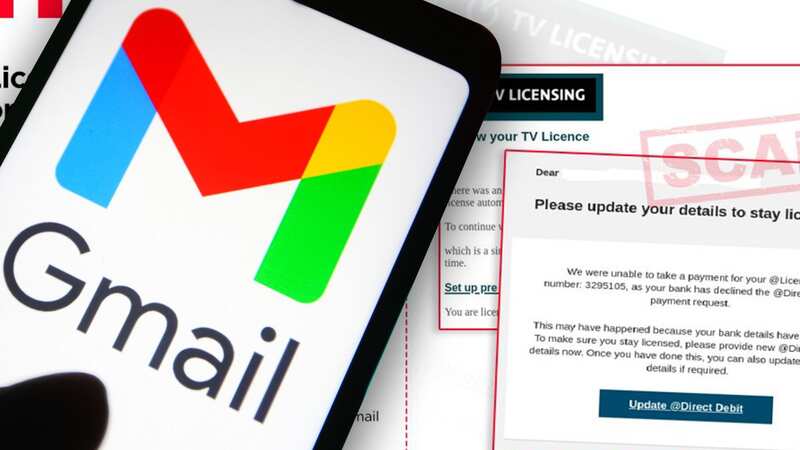All UK Gmail and Yahoo users beware - check your inbox for dangerous emails now
Anyone using popular email providers such as Gmail, Yahoo or Outlook would be wise to follow the latest advice from the security experts at Action Fraud. The UK agency has just issued an urgent alert after the discovery that thousands of UK internet users have been targeted by a scary new TV Licence scam.
Emails have been released across Britain that claim households have missed payments or their accounts are about to expire. One email seen by Action Fraud states, "We were unable to take a payment from your Licence number, as your bank has declined the Direct Debit payment request." This is then followed by a link that urges users to update their details.
The messages appear real and the threat of hefty fines for lack of payment will clearly have some worried.
Of course, these messages all contain links which offer to solve the issues but clicking on them will leave users with more than they bargained for.
According to Action Fraud the emails are all designed to steal personal data including passwords and bank details.
 Bank of Dave self-made millionaire giving away money to 'keep kids working hard'
Bank of Dave self-made millionaire giving away money to 'keep kids working hard'
In a post on X (formerly Twitter) Action Fraud said : "Action Fraud has received 6,307 reports in two weeks relating to fake emails purporting to be from TV Licensing," the group said in a message on X, formerly Twitter. "The emails state the recipient's TV Licence is about to expire, or that there was an issue with their latest payment.
"The links provided in the email lead to genuine-looking websites that are designed to steal your personal information."
If you spot a message that appears to have come from TV Licensing then be on high alert as it could well be fake. If you're unsure about things then email TV Licensing directly or give them a call using the official number found on its website.
Whatever you do, don't use email address or call any numbers written within the email as these could be fake.
"If you have doubts about a message, contact the organisation directly. Don't use the numbers or address in the message - use the details from their official website," added Action Fraud.
"Your bank (or any other official source) will never ask you to supply personal information via email."
Google also has some top tips on how to avoid so-called phishing scams.
In a post on its website, the technology giant said: "Phishing is an attempt to steal personal information or break into online accounts using deceptive emails, messages, ads or sites that look similar to sites you already use. For example, a phishing email may look as though it's from your bank and request private information about your bank account."
Tips to avoid phishing messages and content
1. Pay attention to warnings from Google
 Big Four banks made £20billion in 9 months as households battled interest rates
Big Four banks made £20billion in 9 months as households battled interest rates
2. Never respond to requests for private information
3. Do not enter your password after clicking on a link in a message
4. Beware of messages that sound urgent or too good to be true
5. Stop and think before you click
Read more similar news:
Comments:
comments powered by Disqus


































